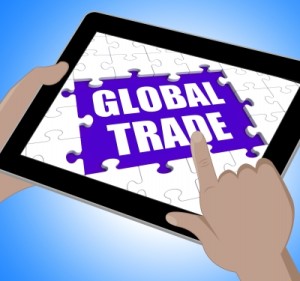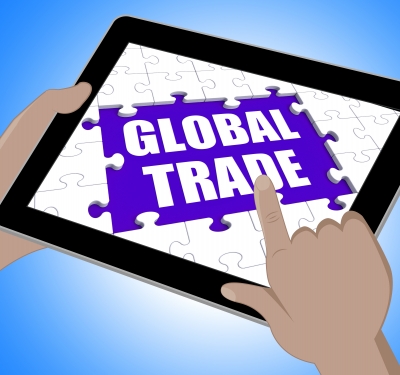 The Philippines’ efforts at implementing trade facilitation measures exceed the overall average in Southeast Asia and the Asia-Pacific, according to a just-released survey by the United Nations Economic and Social Commission for Asia and the Pacific together with all four other UN regional commissions.
The Philippines’ efforts at implementing trade facilitation measures exceed the overall average in Southeast Asia and the Asia-Pacific, according to a just-released survey by the United Nations Economic and Social Commission for Asia and the Pacific together with all four other UN regional commissions.
The Joint United Nations Regional Commissions’ “Trade Facilitation and Paperless Trade Implementation Survey 2015” was released on October 19 and is the first global report on the implementation of measures to simplify import, export and transit procedures.
The survey provides a forward-looking overview of the current state of trade facilitation implementation in 119 economies across eight regions worldwide, including some of the key trade facilitation measures featured in the World Trade Organization Trade Facilitation Agreement, as well as more advanced cross-border paperless trade measures.
It covers 38 trade facilitation measures categorized into four groups, namely: general trade facilitation measures; paperless trade; cross-border paperless trade; and transit facilitation.
The survey revealed that the level of implementation of trade facilitation measures in the Philippines is 63%, above the 46.5% in the regional (Asia-Pacific) and the 56% in sub-regional (consisting of the ten-member Association of Southeast Asian Nations or ASEAN plus Timor-Leste) levels. The Philippines ranks fourth among ASEAN nations in the survey.
Singapore has the highest implementation rate at 89% in ASEAN followed by Thailand (69%) and Malaysia (67%). Behind the Philippines are Laos (61%), Cambodia (58%), Indonesia (57%), Brunei (49%), Vietnam (49%), and Myanmar (32%).
According to the survey, among the five sub-groups of trade facilitation measures (transparency, formalities, cross-border paperless trade, paperless trade and institutional arrangement and cooperation), the most implemented in the Philippines are “formalities” measures (83.3%) and the least implemented “cross-border paperless trade” measures (33.3%).
Formalities, transparency, paperless trade
The implementation of improved “formalities” measures in the Philippines is higher than in both Asia-Pacific and Southeast Asia.
“Formalities” measures encompass risk management; pre-arrival processing; post-clearance audit; separation of release from determination of customs duties, taxes, fees and charges; establishment and publication of average release times; trade facilitation measures for authorized operators; expedited shipments; and acceptance of paper or electronic copies of supporting required for import, export or transit formalities.
According to the survey, the least implemented Philippine measures in the area of “formalities” are post-clearance audit, publication of average release times, trade facilitation measures for authorized operators, and expedited shipments.
The implementation of “transparency” measures by the Philippines is also above the regional average, but below the sub-regional average, the survey noted.
“Transparency” measures consist of publication of import-export regulations on the Internet; stakeholder consultations on draft regulations prior to their implementation; advance publication of regulation before their implementation, advance ruling on tariff classification; and an independent appeal mechanism.
The publication of regulations on the Internet, stakeholder consultations on draft regulations, advance publication of regulation before implementation, and independent appeal mechanism are the measures least implemented under “transparency” in the Philippines.
When it comes to “paperless trade” measures, the Philippines’ implementation rate is higher than both regional and sub-regional averages.
“Paperless trade” measures include electronic/automated customs system established (eg ASYCUDA); electronic single window system; internet connection available to Customs and other trade control agencies at cross border crossings; electronic single window system; electronic submission of Customs declarations; electronic application and issuance of trade licenses; electronic submission of sea cargo manifests; electronic submission of air cargo manifests; electronic application and issuance of Preferential Certificate of Origin; e-payment of Customs duties and fees; and electronic application for Customs refunds.
Among these measures, the e-application for Customs refunds is the least implemented in the Philippines.
The report suggested that “the Philippines may focus its trade facilitation efforts in particular on full implementation of ‘institutional arrangement and cooperation’ measures, as well as on moving towards ‘cross-border paperless trade.’”
ASEAN ratings
As for other ASEAN member countries, the most applied measure is “transparency,” with Singapore leading (100%), while least is “cross border paperless trade,” with Indonesia, Laos, and Vietnam all with only a 22% implementation level.
The survey noted that “regional integration processes appear to have played a significant and positive role in trade facilitation implementation, with several LDCs (least developed countries) in ASEAN, where regional cooperation on trade facilitation has long been promoted, achieving higher implementation rates than LDCs in other sub-regions.”
The survey report showed that 75% of Southeast Asian countries have at least partially implemented laws and regulations for electronic transactions. However, a recognized certification authority issuing digital certificates to traders to conduct electronic transactions has not been implemented in almost 50% of the countries.
“Engagement in trade-related cross-border electronic data exchange remains at best at a pilot stage of implementation, with no implementation reported in over half of the countries,” the report stated. Meanwhile, the least implemented measure under “cross border paperless trade” is electronic exchange of sanitary and phyto-sanitary certificates, which is only in the pilot stage in two countries—Singapore and the Philippines.
The UN report said the average trade facilitation implementation in Southeast Asia is found to be 56%, “suggesting that significant progress has been made in the sub-region.”
It confirmed that a large majority of countries in Southeast Asia have been actively engaged in implementing measures to improve transparency, enhance inter-agency coordination and cooperation, and streamline fees and formalities associated with trade.
While Customs in essentially all countries has been actively developing paperless systems to speed up customs clearance while also improving control, more than 45% of the economies are now also engaged in implementing more advanced national multi-agency paperless systems, such as national electronic single windows, the survey said.
But it noted that implementation of cross-border paperless trade systems remains mostly at the pilot stage at very low levels, although some work has already been done to implement the ASEAN Single Window, for example.
“Some of the challenges mentioned by Southeast Asian countries, such as lack of coordination between government agencies and lack of human resources have possibly contributed to the slow implementation of some of these advanced trade facilitation measures,” the survey report pointed out.
Meanwhile, the global average for implementing trade facilitation is 52.9%, with the Netherlands coming out as the best performer.
The survey said overall results suggest most economies understand the potential benefits of trade facilitation and have already taken concrete steps towards streamlining trade procedures. – Roumina Pablo
Image courtesy of Stuart Miles at FreeDigitalPhotos.net





